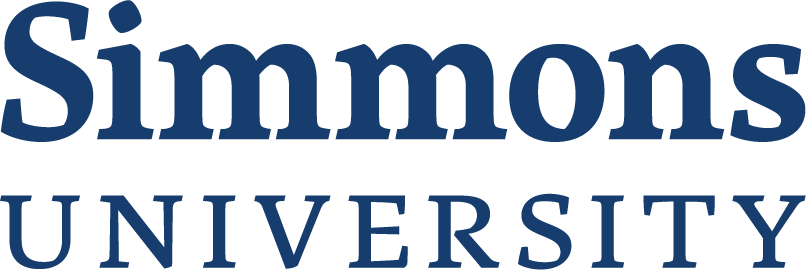The Consortium for the Science of Sociotechnical Systems (CSST) Calls for Participation in the 2015 Summer Research Institute
Posted February 6, 2015
When: July 20 – 24, 2015
Where: The Nature Place, near Colorado Springs, CO
Deadline: Apply by February 25, 2015
Personal health and well-being; open innovation, eScience, and citizen science; co-production, open source, and new forms of work; cultural heritage and information access; energy management and climate change; civic hacking, engagement and government; disaster response; cybersecurity and privacy; education and learning – these are just a few problem domains where effective design and robust understanding of complex sociotechnical systems are critical.
To meet these challenges, a trans-disciplinary community has come together, drawing together scholars from intellectual communities such as CSCW, HCI, social computing, organization studies, information visualization, social informatics, sociology, information systems, medical informatics, computer science, ICT for development, education, learning science, journalism, and political science. Through Summer Research Institutes, extended workshops, preconference workshops, and other activities, this community of researchers from academia and industry has developed a strong focus on problems and opportunities arising from the interplay of social and technological systems that span individuals, groups, organizations, and societies.
The 2015 Summer Research Institute builds on this tradition to strengthen and expand this diverse community by bringing together graduate students, post-doctoral students, faculty, and other researchers in three groups:
- Doctoral students, post-doctoral students, pre-tenure faculty, and early career researchers – Mentoring, peer networking, and skill-building tutorials will help doctoral students, post-doctoral students, pre-tenure faculty, and early career researchers identify substantive ways that the theories, approaches, and tools within the larger community can advance their work with the design and study of sociotechnical systems.
- Emerging multi-disciplinary research teams – Groups of researchers seeking to develop cross-disciplinary collaborations will work with mentors to refine problem statements and research goals; connect with collaborators with complementary skills and interests; and create actionable research agendas and funding proposals. Preference will be given to groups interested in designing and studying sociotechnical systems that address societal grand challenges such as (but not limited to) healthcare; energy management and climate change; cybersecurity and privacy; education and learning; disaster response; technology development and innovation; economic development and work; and civic engagement and participation.
- Research infrastructure development teams – Groups of researchers interested in creating computational or analytic tools, data resources, training materials, or other infrastructure to support the design and study of sociotechnical systems will come together to work on new challenges. These infrastructure “hackathon” sessions will result in community resources such as use cases, prototypes, draft materials, and deployable systems.
Applying for CSST 2015 Summer Research Institute
We encourage applications from all academic, industry, NGO, and public sector organizations worldwide. To apply for the 2015 Summer Research Institute, select the group that best fits your needs and situation:
- Doctoral students, post-doctoral students, pre-tenure faculty, and early career researchers should send their CV and a short (up to 300 words) response to the question “How does/will your work advance our ability to design and understand critical sociotechnical systems?” Include three relevant references to situate your work within the larger research community. Doctoral students should have completed their dissertation proposal prior to attending and should seek a letter of recommendation from their advisor/department chair indicating their expected graduation date as well as how the CSST Summer Research Institute will advance their scholarship.
- Emerging multi-disciplinary research teams should apply as a group, sending their CVs and a short (up to 500 words) response to these questions: “What is the research focus/problem domain? What types of activities/studies are needed to engage that domain? How will pursuing this agenda help advance our ability to design and understand critical sociotechnical systems?” Include references and potential funding sources, if known, to situate the proposal within the larger research community. Your team may have from three to six people. Preference will be given to cross-institutional teams in which junior/mid-career researchers play significant leadership roles.
- Research infrastructure development teams should apply as a group, sending their CVs and a short (up to 500 words)) response to these questions: “What is the problem you are seeking to address? What will you do to address that problem? How will creating these technologies, tools, materials or infrastructure improve our ability to design and understand critical sociotechnical systems?” Include references to examples from other domains, if possible, to situate your proposal. Your team may have from three to six people from multiple disciplines and institutions.
Lodging, meals, and other onsite costs will be covered for all Summer Research Institute participants. Limited travel support is available, if needed, for participants from US and Canadian institutions (with preference given to doctoral and post-doctoral students). To be considered for all available financial support you should provide the following information when you apply:
- What college or university do you attend?
- What is your primary department affiliation?
- If you are applying from a Canadian university, are you a member of the GRAND network?
Send your application materials to Summer Research Institute Co-Director Diane Bailey at [email protected] by February 25, 2015. The CSST Summer Research Institute Advisory Group will review applications beginning March 1, 2015 using the following criteria:
- Clear articulation of the hoped-for contribution to the theory, practice, or design of sociotechnical systems
- Likelihood of Summer Research Institute participation providing significant practical benefit for the individual/team
- Contribution to a balanced and diverse group of participants
The number of participants we select will depend on the available funding and the fit between applicants’ interests and CSST goals.
For more information about the Summer Research Institute, contact the Summer Research Institute Co-Directors, Diane Bailey ([email protected]) and Dan Cosley ([email protected]). For information about the broader community of researchers interested in design and study of sociotechnical systems, see: CSST (www.sociotech.net), the “Researchers of the Socio-Technical” Facebook group, or the CSST listserv ([email protected]).
